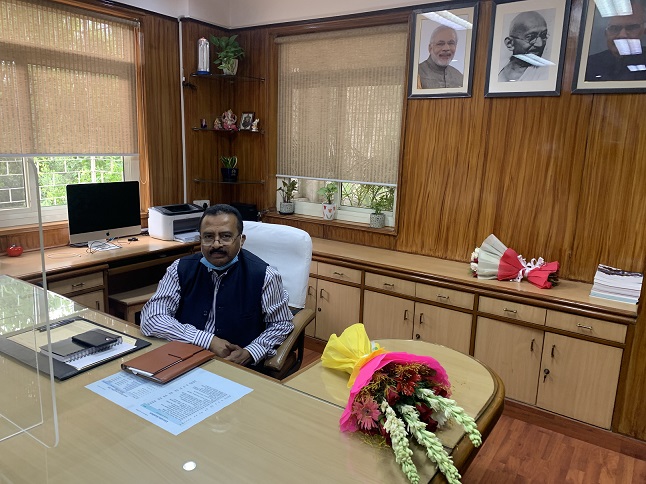10 Personal Finance Planning Tips for a Prosperous Future
Remember that personal finance planning is an ongoing process requiring dedication and discipline but ultimately leading you towards financial freedom and peace of mind! So start implementing these tips today and pave the path towards a brighter future!

10 Essential Tips for Successful Financial Personal Planning
Welcome to our personal finance planning tips! Whether you're a recent college graduate starting your career or someone looking to improve their financial situation, having a solid plan in place is crucial for building a prosperous future. Personal finance planning allows you to take control of your money, make informed decisions, and work towards achieving your financial goals.
In this article, we will share 10 valuable tips that can help you pave the way to financial success. So let's dive in and discover how you can take charge of your finances like a pro!
Tip 1: Set financial goals
Setting financial goals is the first step towards achieving a prosperous future. Without clear goals, it's like sailing without a destination in mind. So, take some time to think about what you want to achieve financially.
Start by identifying your short-term and long-term goals. Short-term goals could include saving for a vacation or paying off credit card debt, while long-term goals might involve buying a home or retiring comfortably.
Once you have determined your goals, make them specific and measurable. Instead of saying "I want to save money," set a specific amount that you want to save each month. This will give you something concrete to work towards.
It's also important to prioritize your financial goals. You may need to tackle certain things before moving on to others. For example, paying off high-interest debt should take precedence over saving for retirement.
Remember that setting financial goals is not just about dreaming big; it's about taking action too! Break down your larger objectives into smaller steps that are achievable within a certain timeframe.
Regularly review and reassess your financial progress as well. Life circumstances can change, so it's important to adapt your goals accordingly.
By setting clear financial objectives and taking consistent action towards them, you'll be well on your way towards creating the prosperous future you desire!
Tip 2: Create a budget
Creating a budget is an essential step in personal finance planning. It allows you to gain control over your finances and make informed decisions about how you spend and save your money.
Start by evaluating your income and expenses. Take into account all sources of income, such as salary, investments, or side hustles. Then, list out all your monthly expenses - rent/mortgage payments, utilities, groceries, transportation costs - everything that requires money from your pocket.
Next, categorize these expenses as fixed or variable. Fixed expenses include those that remain constant each month like rent or insurance premiums. Variable expenses are more flexible and may change depending on factors like entertainment or dining out.
Once you have a clear picture of your income and expenditures, it's time to set financial goals based on this information. Determine how much you want to save each month for emergencies or future plans like buying a house or traveling abroad.
Now comes the crucial part - sticking to the budget! It's not enough just creating one; you need to ensure that you follow it diligently. Track every expense using apps or spreadsheets regularly so that you can identify any areas where overspending occurs.
Remember that budgets are not meant to be restrictive but rather empowering tools for managing your money effectively. They allow you to allocate funds towards things that matter most while cutting back on unnecessary spending.
In summary, creating a budget is vital for effective personal finance planning. By assessing your income and expenditure patterns, setting financial goals, and tracking every expense meticulously, you'll be well on the path towards achieving financial stability and success.
Tip 3: Pay off debt
Debt can be a heavy burden that holds you back from achieving financial freedom. It's important to take control of your debt and make a plan to pay it off. Start by listing all your debts, including credit cards, loans, and any other outstanding balances. Take note of the interest rates and minimum payments for each.
Next, prioritize your debts based on their interest rates. Focus on paying off high-interest debt first while making at least the minimum payments on other debts. Consider using the snowball or avalanche method to accelerate your progress.
To free up more money for debt repayment, look for ways to cut expenses and increase income. This could mean downsizing your living arrangements or finding side gigs to bring in extra cash.
It's also crucial to avoid taking on new debt while paying off existing ones. Resist the temptation of unnecessary purchases and stick to a strict budget.
Paying off debt takes time and discipline but is well worth the effort in the long run. By becoming debt-free, you'll have more financial flexibility and can redirect those monthly payments towards savings or investments for a brighter future ahead.
Tip 4: Save for emergencies
Emergencies can strike at any time, and being financially prepared is crucial for your peace of mind. Saving for emergencies should be a top priority in your personal finance planning.
Start by building an emergency fund that covers at least three to six months' worth of expenses. This will provide a safety net during unexpected situations such as job loss, medical emergencies, or major car repairs.
To save efficiently, create a separate savings account dedicated solely to your emergency fund. Automate regular contributions from your paycheck or set up automatic transfers from your checking account each month.
Cut unnecessary expenses and redirect those funds towards your emergency savings. Consider making small lifestyle adjustments like eating out less frequently or canceling subscriptions you don't use anymore.
It's important to remember that the purpose of an emergency fund is not for discretionary spending but rather to protect yourself from financial hardships. Avoid dipping into this fund unless it's absolutely necessary.
Keep track of your progress regularly and adjust the amount you save if needed. As you build up your emergency fund over time, you'll gain confidence knowing that you have a financial cushion when unforeseen circumstances arise.
Saving for emergencies may require some sacrifices in the short term but it will ultimately provide long-term financial security. Take control of your future by prioritizing this essential aspect of personal finance planning today!
Tip 5: Invest in your retirement
Investing in your retirement is a crucial step towards securing a prosperous future. It's never too early to start planning for those golden years, and the earlier you begin, the more time your investments have to grow.
One of the most popular ways to save for retirement is through employer-sponsored 401(k) plans. These plans allow you to contribute a portion of your salary on a pre-tax basis, which means you'll be saving money on taxes while also building up your retirement nest egg.
Another option is an Individual Retirement Account (IRA), which offers tax advantages similar to a 401(k). With an IRA, you can choose from traditional or Roth options depending on whether you want immediate tax benefits or tax-free withdrawals in retirement.
It's important to diversify your investment portfolio when planning for retirement. While stocks may offer high returns over the long term, they also come with higher risk. Consider balancing out your portfolio with bonds, real estate investments, and other assets that provide stability and income.
Keep in mind that investing for retirement requires discipline and regular contributions. Set aside a certain percentage of each paycheck towards your retirement goals so that it becomes automatic and non-negotiable.
Remember that investing in your retirement isn't just about setting money aside; it's about making strategic decisions based on careful research and analysis. Stay informed about market trends, economic indicators, and any changes in regulations or laws that could impact your investments.
Investing in your retirement is all about taking control of your financial future. By starting early, diversifying wisely, staying informed, and being disciplined with contributions - you're setting yourself up for a comfortable lifestyle during those well-deserved golden years!
Tip 6: Diversify Your Investments
When it comes to investing, the age-old adage of "don't put all your eggs in one basket" rings true. Diversification is a crucial strategy that can help protect and grow your wealth.
Putting all your money into one investment is risky because if that particular investment fails, you could lose everything. By spreading your investments across different asset classes such as stocks, bonds, real estate, and commodities, you reduce the risk of losing everything at once.
Diversification allows you to capitalize on different market conditions and potentially earn higher returns while minimizing risk. It's like having a safety net for your portfolio.
But remember, diversifying doesn't mean blindly picking random investments. You need to research and understand each asset class before allocating your funds accordingly. Seek professional advice or educate yourself through reputable sources to make informed decisions.
Keep in mind that diversification also means periodically rebalancing your portfolio based on changing market conditions. This ensures that your investments stay aligned with your goals and risk tolerance.
Diversifying your investments is an essential step towards building a robust financial future. By spreading out risks across various assets and adjusting them over time, you increase the likelihood of achieving long-term success.
So go ahead and explore different investment options – just remember not to put all of those precious eggs in one basket!
Tip 7: Monitor and track your expenses
Monitoring and tracking your expenses is a crucial aspect of personal finance planning. By keeping a close eye on where your money is going, you can make informed decisions about how to allocate your resources more effectively.
One way to monitor your expenses is by using budgeting apps or online tools that automatically categorize and track your spending. These tools provide valuable insights into where you are overspending or neglecting certain areas of your budget.
Another effective method is to keep a detailed record of all your receipts and transactions. This allows you to review them regularly and identify any unnecessary or frivolous expenses that can be eliminated.
Additionally, it's important to analyze patterns in your spending habits over time. Are there certain months when you tend to spend more? Are there any recurring expenses that could be reduced or eliminated?
Regularly reviewing and analyzing these expense records will empower you with the knowledge needed to make adjustments in order to achieve financial stability and reach your long-term goals.
Remember, monitoring and tracking may require some discipline initially, but the benefits far outweigh the effort involved. So start today, take control of your finances, and pave the way for a prosperous future!
Tip 8: Seek professional advice
Seeking professional advice is a crucial step in personal finance planning. While it may seem tempting to handle your finances on your own, consulting with an expert can provide valuable insights and guidance. Financial advisors have the knowledge and experience to help you make informed decisions about investments, retirement planning, tax strategies, and more.
A professional advisor can assess your financial situation holistically and tailor a plan that suits your specific goals and needs. They can help you navigate complex financial concepts, such as asset allocation or risk management. By working closely with an advisor, you can gain clarity on the best course of action for achieving long-term financial success.
Moreover, seeking professional advice doesn't mean relinquishing control of your finances entirely. It's important to choose an advisor who not only understands your objectives but also empowers you to take ownership of your financial future. Regular meetings with them will keep you accountable and allow adjustments along the way as needed.
Remember that finding the right advisor is key; someone who aligns with your values and has a solid track record in helping clients achieve their goals. Don't hesitate to interview multiple professionals before making a decision.
Seeking professional advice brings expertise into play while providing personalized strategies based on individual circumstances. So consider partnering with a trusted advisor who can guide you towards greater financial stability and prosperity!
Tip 9: Protect Yourself with Insurance
Protecting yourself with insurance is a crucial aspect of personal finance planning. Life is unpredictable, and it's essential to have safeguards in place to protect your financial well-being in case of unexpected events or emergencies. Insurance provides you with the necessary coverage to face such situations without facing significant financial setbacks.
One type of insurance that everyone should consider is health insurance. Medical expenses can be astronomical, and having adequate health insurance can help cover these costs and ensure access to quality healthcare when needed. It offers peace of mind knowing that you won't have to bear the burden of hefty medical bills on your own.
Another important type of insurance is auto insurance. If you own a car, having proper coverage not only protects your vehicle but also provides liability protection in case you cause an accident. Without auto insurance, you could be responsible for paying for damages out-of-pocket, which can quickly add up.
Homeowners or renters' insurance is also essential for protecting your property and belongings from damage or loss due to various unforeseen events like fire, theft, or natural disasters. This coverage ensures that if anything were to happen, you would be able to recover financially and rebuild without starting from scratch.
Additionally, life insurance plays a vital role in providing financial security for your loved ones after your passing. It helps replace lost income and assists with funeral expenses or outstanding debts so that those left behind are not burdened by financial difficulties during an already challenging time.
Consider disability insurance as a way to safeguard against losing income due to illness or injury that prevents you from working temporarily or permanently. Disability benefits provide a source of income while dealing with medical issues so that you can focus on recovery without worrying about finances.
Remember always carefully review different policies available as per your needs before selecting any specific plan offered by insurers.
Insurance may seem like an additional expense initially; however investing in appropriate coverage will save money over the long run by protecting yourself from catastrophic financial losses. So, don't overlook the importance of insurance in your personal finance planning and make sure you have adequate coverage in place for your specific circumstances.
Tip 10: Continuously Educate Yourself
Personal finance is a dynamic subject with constantly changing laws, regulations, and trends. It's essential to continuously educate yourself about personal finance to stay updated and informed. This can help you make better financial decisions that are relevant to your current situation.
Make it a habit to regularly read articles, books, or blogs on personal finance topics. Follow reputable experts on social media platforms and attend seminars or workshops when possible. You could also consider taking courses on financial planning or investing, either online or at a local college.
Educating yourself about the basics of personal finance will allow you to gain a deeper understanding of complex concepts like investing, taxes, insurance, retirement planning, debt management, etc. This knowledge will empower you to take control of your financial future and make informed decisions that align with your goals.
Furthermore, staying up-to-date will enable you to spot potential opportunities or challenges that may arise in the economy or job market. This insight can help you plan accordingly and prepare for any unexpected changes that may affect your finances.
Final Thoughts
Personal finance planning is an ongoing process that requires time and effort. By implementing these tips in your daily life, you can achieve financial security and reach your long-term goals successfully. Remember to track your progress regularly, and make adjustments as needed to stay on track towards financial freedom.
Tip 10: Stay Informed about Taxes
Taxes are an important aspect of personal finance planning that should not be overlooked. Staying informed about tax laws and regulations can help you make the most of your financial situation and avoid any unnecessary penalties or fines.
One way to stay on top of your taxes is to keep track of any changes in tax laws that may affect you. This could include updates to income tax rates, deductions, credits, and other relevant information. By staying informed, you can take advantage of any applicable benefits or incentives while ensuring compliance with the law.
Additionally, it's crucial to maintain accurate records and documentation related to your finances throughout the year. This will make filing your taxes much easier when the time comes. Consider using digital tools or hiring a professional accountant to assist you in organizing your financial records effectively.
Don't hesitate to seek professional advice regarding taxes if needed. Tax professionals have extensive knowledge in this area and can provide valuable guidance tailored specifically to your circumstances.
In conclusion, personal finance planning is essential for creating a prosperous future. By setting goals, creating budgets, paying off debt, saving for emergencies, investing wisely, monitoring expenses regularly,and seeking professional advice when necessary - along with keeping abreast of changing tax regulations -you're well on your way toward achieving long-term financial success.
Remember that personal finance planning is an ongoing process requiring dedication and discipline but ultimately leading you towards financial freedom and peace of mind! So start implementing these tips today and pave the path towards a brighter future!











.jpg)


































